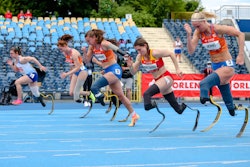AURORA, Colo. — Dr. Alberto Costa’s discovery that a drug might help the memory of people with Down syndrome was more than just a breakthrough for him as a scientist.
His daughter, Tyche, was born with the chromosomal condition 17 years ago. The clinical trial that he recently completed, producing cautiously encouraging results about a drug called memantine, was part of a journey that began with her birth.
Costa found that little brain science had been done on people with the abnormality. There was a “huge focus,” he says, on preventing their births. His wife, Daisy, had declined the pre-natal testing that might have uncovered Tyche’s condition because testing had spurred a miscarriage of a previous pregnancy.
The birth of Costa’s daughter, named after the Greek goddess of fortune and chance, wound up reconfiguring his life and his career.
Tyche became his inspiration, and Down syndrome and the brain, the focus of his research. It was a switch, but not a drastic one, from what he was doing when she came along—research at Baylor University in Houston into how brain cells relate to each other.
“It gives me a sense of purpose,” says Costa, 49, a native of Brazil who is now associate professor of medicine and neuroscience at the University of Colorado-Denver Anschutz Medical Campus. “It was the right purpose at the right time.”
“You have this human being in front of you,” he says, recalling Tyche’s birth. “An individual did not ask to be born—it’s your full responsibility.”




















